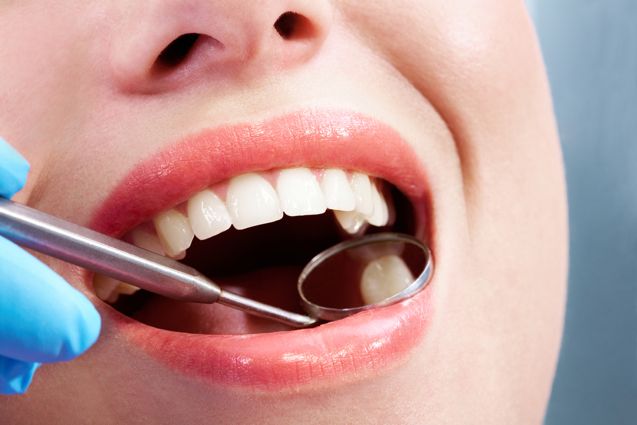Dental cavities, sometimes referred to as caries, are holes that appear in teeth as a result of tooth decay. There are two primary causes of dental cavities: bacteria and a diet heavily reliant on refined sugars and starches. These five easy to follow practices will also help you avoid dental decay.
Eliminate the Sweets
Typically, people snack on sweet foods throughout the day. This means that their blood sugar fluctuates throughout the day, too, drawing important minerals – such as calcium and phosphorus – away from their teeth and into their blood stream. Learning to limit your intake of natural and refined sugars will allow your body to keep these teeth-strengthening minerals in your mouth. Fruits, although healthy, are teeming with natural sugars, and have the same effect on your blood sugar as other sweets, like candy.
Avoid Foods with High Fructose
Surprisingly, high fructose corn syrup has a more intense effect on blood sugar fluctuation than sugar. This means that consuming corn starch pulls even more calcium from your teeth into your bloodstream to combat the change in blood fructose. Any time calcium is removed from your teeth, even if it is only temporary, your mouth is more prone to cavity-causing bacteria.

Eat Plenty of Calcium
Calcium is known to build strong bones and strong teeth. Eating a calcium-rich diet, then, is an effective way of ensuring that your teeth are protected against possible decay-causing agents. Calcium-rich foods include: yogurt, milk, cheese, and other dairy products. Eating the recommended three to five servings (or even more, if you can) is an easy to follow method of cavity prevention because dairy foods are so delicious.
Use Butter Often
Another delicious foodstuff that provides excellent protection against cavities is butter. New research suggests that cultures who consume the most animal fats – like butter – have the lowest cavity rates. Fats infuse our blood with vitamin-rich nutrients, which also help fortify our teeth. Butter has also shown to limit the amount our blood sugars fluctuate, keeping the calcium and phosphorus locked into our teeth.
Floss Frequently
Recent studies indicate that flossing is more effective against fighting cavities than brushing with a toothbrush. This is because brushing can actually push bacteria and plaque around your mouth and further into your gum line. Using dental tape instead of floss during your flossing regimen helps coax out the cavity-causing plaque that hides along the gum line. Dental tape is more effective than floss because it’s wider than super-thin floss.
Avoiding cavities can be a nightmare for some people and so if you are concerned about them, a cosmetic dentist in Encino can examine your mouth and give you specific advice for your own issues.





Recent Comments